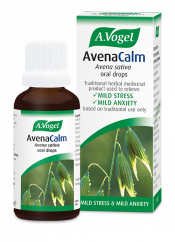An introduction to stress-related illnesses
Stress can trigger a number of physical problems. It is important to be aware of some of the other illnesses which stress can cause as this will give a vital indication that your stress problems are getting out of hand.
If you have noticed other illnesses developing, it is important to seek medical attention, for help with both the stress and the secondary illness.
Inflammation of the skin and other tissues
Although it may seem unlikely that stress can cause you to develop skin problems, it is thought that increased levels of stress hormones can cause inflammation of the skin resulting in conditions such as eczema or psoriasis.
The body’s immune system may react in a similar way, and start to attack healthy tissues, causing rheumatoid arthritis or ulcerative colitis, for example. Inflammatory conditions can seem to come out of nowhere, but this is because many people do not recognise that there is a correlation with stress. If you suspect this may be the root of the problem, then tackling your stress issues will often mean that the other conditions also clear.
Sleep problems or insomnia
Insomnia is a term which is becoming overused, as it is often used to describe a general difficulty falling asleep or staying asleep. However, true insomnia is a medical condition which is usually caused by a psychological or psychiatric condition. It is a chronic (long-term) and severe problem which should be treated by a medical professional.
Stress is likely to cause you to have sleep problems, but if not tackled, this may lead to insomnia. Lack of sleep, in turn, is likely to cause you to stress more, and so the vicious cycle will continue and worsen until you seek medical intervention. Sleep problems in themselves can lead to other symptoms such as headaches, and there is also thought to be a direct link with more serious conditions such as cardiovascular disease.
Headaches
Most people will have experienced the unpleasant sensation of a headache at some stage in their life, usually associated with a minor infection such as the flu. However, stress can cause persisting or recurring headaches.
This is often because when you feel under stress, your muscles tense up, in preparation for the ‘fight or flight’ response. It is possible to observe a stressed person’s shoulders neck and back tensing, although often the sufferer doesn’t realise. This prolonged tension causes pain and stiffness in the muscles, which often leads to headaches. This is why headaches associated with stress are often called tension headaches. Often finding ways of relaxing the muscles alleviates the headaches.
Cardiovascular disease
Stress often causes you to have an increased heart rate and a raised blood pressure. While this is fine in the short time for which the ‘fight or flight’ mechanism is designed, being continually in this mode puts extra strain on your heart and other organs.
There is a direct relationship between people who are experiencing continuously high levels of stress and the tendency to develop circulatory problems, such as heart attacks or strokes. This should not be ignored as cardiovascular disease can be life-threatening.
Irritable Bowel Syndrome (IBS)
In a similar way to skin problems, IBS related with to stress tends to be the result of the body’s immune system being overly active and attacking healthy parts of the body.
Stress can cause havoc with your digestive system. A lot of this can be put down to the fact that a stressed person tends to eat on the move, not giving the body time to digest food properly. They are also likely to skip meals and binge. The human digestive system is not designed to cope with this, and will tell you so by making you feel nauseous or giving you constipation or diarrhoea. The anxiety often created by an inconvenient need to rush to the toilet can sometimes worsen the problem.
Low mood
Stress and low mood are often closely linked. This is because we don’t usually appreciate the feeling of stress, especially for extended periods of time. If we are unable to relax and do activities which we enjoy, this will also contribute to a feeling of low mood. If severe this may develop into depression, which can be a serious medical condition, particularly if left untreated.
Addiction
Many people who are suffering from stress look for a quick and easy solution, often in the form of cigarettes, food, alcohol or drugs. While these may bring temporary relief, they often act as a depressant, increasing your problems in the long run. As well as this, they are likely to become addictive, which, needless to say, can have a more serious impact on your general health. While a glass of wine or a bar of chocolate can do wonders for cheering us up, this should not become a regular form of self-medication.
To help beat these addictions, try the Jan de Vries Craving Essence.








